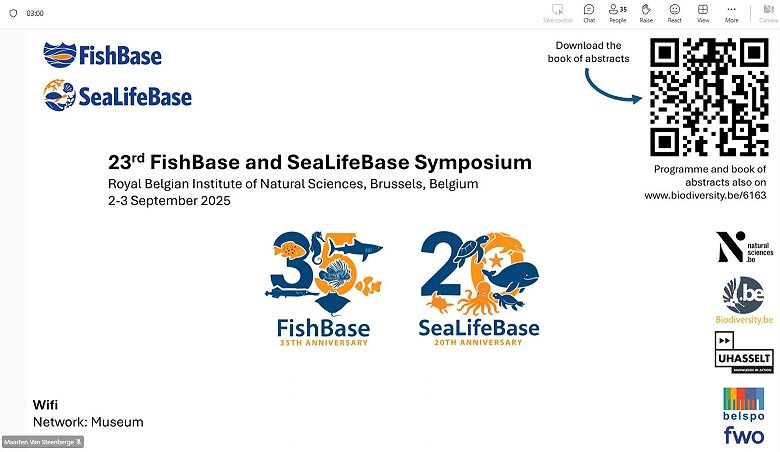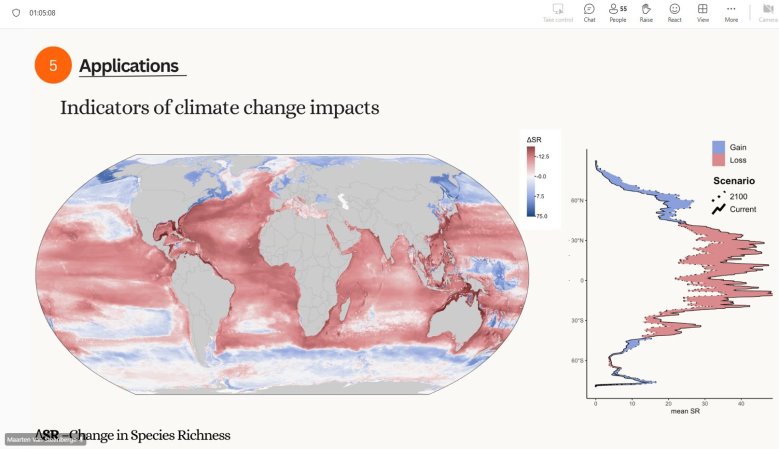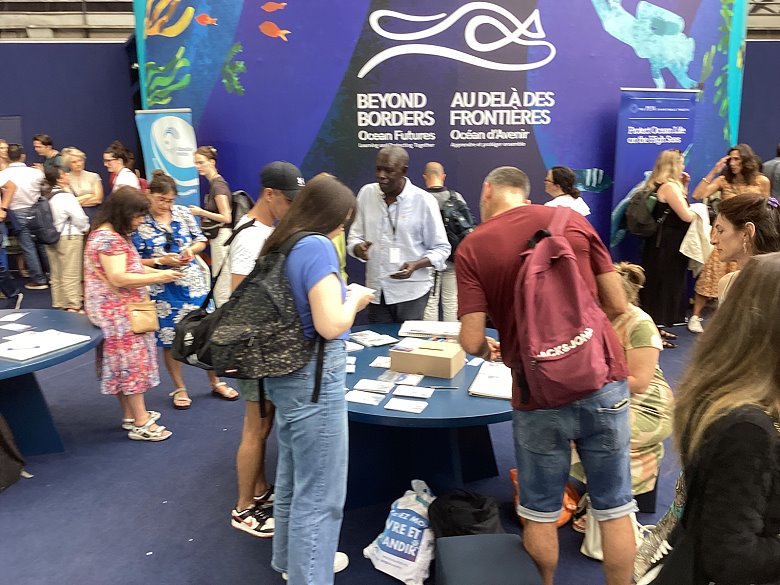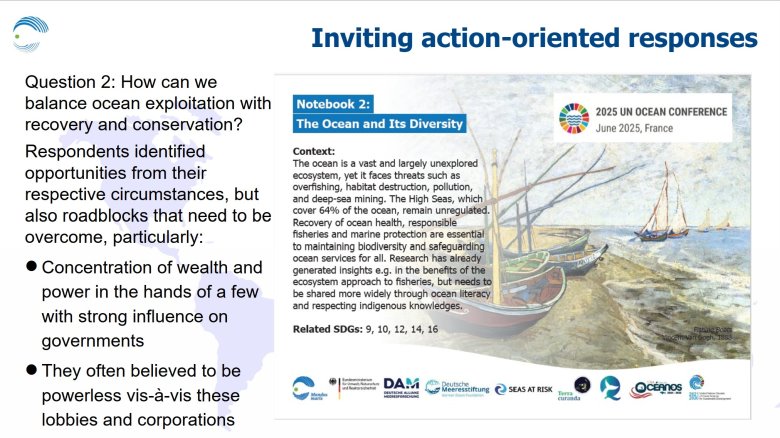This annual FishBase-SeaLifeBase Symposium marks the 35th anniversary of FishBase and the 20th anniversary of SeaLifeBase. FishBase is a global, open access information system about fishes that contains published scientific data on topics such as physiology and behaviour, life-history characteristics, and species distributions. According to a recent analysis by Austin T. Humphries and co-workers FishBase is in the top 1% of all cited items published in this and the previous century. It currently covers more than 36,000 species. SeaLifeBase covers non-fish marine organisms, currently almost 72,000 species. Besides marine mammals and other emblematic species, it is a lot harder to collect information about the much more diverse invertebrate species, like crustaceans, mollusks, and echinoderms. Many have important ecological roles but most are less commercial and thus less researched than fish.

The symposium was hosted by the Royal Belgian Institute of Natural Sciences (RBINS) in Brussels in the premises of the Natural History Museum. The key organisers Dr. Maarten Van Steenberge and Dr Tobias Musschoot had accommodated a wide range of interesting talks in the dense programme ranging from the ecological role of parasites, investigations of distinct fish sounds in genera of squirrel fish, Antarctic fish adaptations, growth patterns and species richness under conditions of climate change and more.

Application of Aquamaps by Gabriel Reygondeau of the University of Miami showing poleward movement of species in a warming ocean
Mundus maris contributed a talk titled ‘FishBase and other stories at UNOC3’. Already during the initial public consultation in 2024, we had highlighted the importance of using the public information systems FishBase, SeaLifeBase, and Aquamaps for scientific analyses and driving ocean literacy as a prerequisite for more effective ocean protection. As it is a dedicated group of people developing and providing these enabling knowledge infrastructures, it is people engaging in making the change from predominantly profit driven extractions now at very harmful levels towards regenerative action for healing the ocean and taking only as much as can regrow.

This spirit underpinned the side events a group of organisations conducted under the leadership of Mundus maris at the UN Ocean Conference in Nice, in June this year in the publicly accessible ‘Green Zone’. The focus on four Blue Notebooks collecting visitor views, comments, and suggestions intended to enhance engagement for action at local and higher levels. The reactions showed great awareness and willingness to learn, but also concerns about the attempts of fossil and other lobbies to block the necessary change.

Many discussions therefore focused on the need for more collaboration, enrolling the expertise of diverse citizen groups in combination with science results to test locally adapted solutions to the identified problems.
 Examples of the means to help fish grow to reproductive size helped by the FishBase Guide app that supports citizen action, the struggles for keeping protective legislation and its enforcement, such as the Green Deal in Europe, and the great drive to ratify the BBNJ Treaty on protecting biodiversity in areas beyond national jurisdiction just short of very few countries to enter into force, were sources of hope and renewed energy.
Examples of the means to help fish grow to reproductive size helped by the FishBase Guide app that supports citizen action, the struggles for keeping protective legislation and its enforcement, such as the Green Deal in Europe, and the great drive to ratify the BBNJ Treaty on protecting biodiversity in areas beyond national jurisdiction just short of very few countries to enter into force, were sources of hope and renewed energy.
The app has meanwhile been downloaded by some 11,000 users and gets continuously improved with better language translation.
The responses in the four blue notebooks and related post cards collected online and on site are now being translated for wider sharing in an eBook to support advances in ocean literacy.
Another example of the mobilising effect of the successful cooperation between researchers and, in this case, small-scale fisher representatives from around the globe, was delivered in the ‘Blue Zone’ reserved for government negotiators, in the occasion of the side event supporting an active role of small-scale fishers (SSF) in ocean governance. Ministers from Costa Rica, one of the co-hosts of UNOC3, and Madagascar publicly voiced their support for demarginalising SSF and favouring co-management.
The slides are available here.
The symposium ended with a firework of presentations ranging from taxonomic capacity building (Abc Taxa) with focus on Africa, several talks on using genetics for better understanding of biodiversity to a science-based board game on marine conservation in the Aegean Sea. A great learning and cooperative experience.
